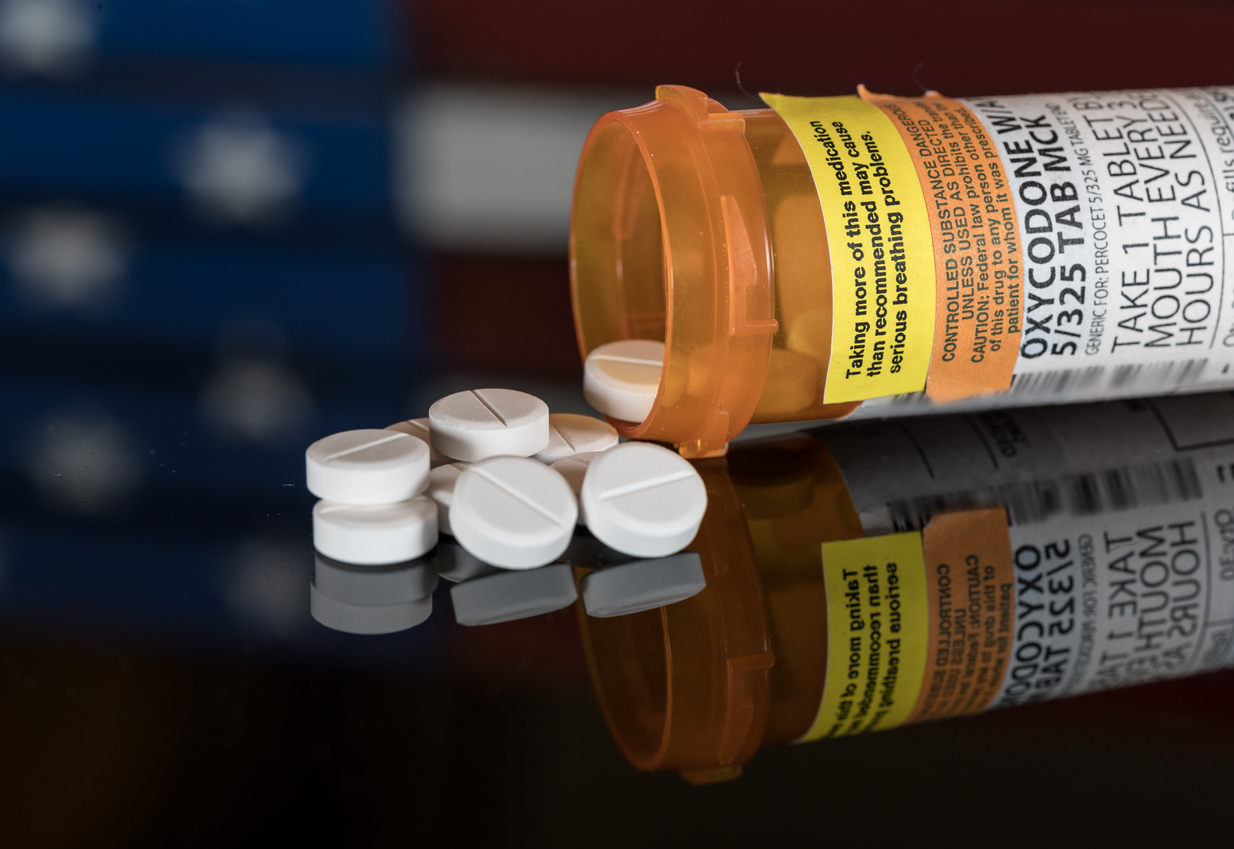Purdue Pharma planned to profit off opioid addiction treatment as early as 2014, new lawsuit argues


A free daily email with the biggest news stories of the day – and the best features from TheWeek.com
You are now subscribed
Your newsletter sign-up was successful
It's become well known that the Sackler family, founders of Purdue Pharma, have come under scrutiny for their company's role in America's current opioid epidemic. Purdue and the Sacklers now face upwards of 1,600 lawsuits.
But not only do the lawsuits attempt to show that the Sacklers, who have so far avoided legal consequences, were heavily involved in marketing opioids to patients, The New York Times reported on Monday. The family also allegedly sought to profit by selling treatments to patients who became addicted to Purdue's painkillers.
Details of the marketing push, referred to as Project Tango, are reportedly laid bare in lawsuits filed by the attorneys general of Massachusetts and New York.
The Week
Escape your echo chamber. Get the facts behind the news, plus analysis from multiple perspectives.

Sign up for The Week's Free Newsletters
From our morning news briefing to a weekly Good News Newsletter, get the best of The Week delivered directly to your inbox.
From our morning news briefing to a weekly Good News Newsletter, get the best of The Week delivered directly to your inbox.
The New York complaint highlights one Project Tango document which depicted a blue funnel — the larger end of which was labeled "pain treatment," the narrow end labeled "opioid addiction treatment." The document said that "pain treatment and addiction are naturally linked," suggesting the profits from one could lead to profits from the other. The Times reports that an email included in the Massachusetts filing shows that Kathe Sackler, one of the eight family members on Purdue's board, told employees to direct 'immediate attention" to the idea.
Purdue also reportedly pursued a plan to sell naloxone, an overdose-reversing drug and in 2016, three Sacklers "discussed buying a company that used implantable drug pumps to treat opioid addiction." Purdue has continued to develop products for opioid treatment, though it says it is also taking charitable steps to curb addiction. The Sacklers denied the allegations against them in a statement provided to the Times. Read more at The New York Times.
A free daily email with the biggest news stories of the day – and the best features from TheWeek.com
Tim is a staff writer at The Week and has contributed to Bedford and Bowery and The New York Transatlantic. He is a graduate of Occidental College and NYU's journalism school. Tim enjoys writing about baseball, Europe, and extinct megafauna. He lives in New York City.
-
 Can the UK take any more rain?
Can the UK take any more rain?Today’s Big Question An Atlantic jet stream is ‘stuck’ over British skies, leading to ‘biblical’ downpours and more than 40 consecutive days of rain in some areas
-
 The UK expands its Hong Kong visa scheme
The UK expands its Hong Kong visa schemeThe Explainer Around 26,000 additional arrivals expected in the UK as government widens eligibility in response to crackdown on rights in former colony
-
 One great cookbook: Joshua McFadden’s ‘Six Seasons of Pasta’
One great cookbook: Joshua McFadden’s ‘Six Seasons of Pasta’the week recommends The pasta you know and love. But ever so much better.
-
 ABC News to pay $15M in Trump defamation suit
ABC News to pay $15M in Trump defamation suitSpeed Read The lawsuit stemmed from George Stephanopoulos' on-air assertion that Trump was found liable for raping writer E. Jean Carroll
-
 Judge blocks Louisiana 10 Commandments law
Judge blocks Louisiana 10 Commandments lawSpeed Read U.S. District Judge John deGravelles ruled that a law ordering schools to display the Ten Commandments in classrooms was unconstitutional
-
 ATF finalizes rule to close 'gun show loophole'
ATF finalizes rule to close 'gun show loophole'Speed Read Biden moves to expand background checks for gun buyers
-
 Hong Kong passes tough new security law
Hong Kong passes tough new security lawSpeed Read It will allow the government to further suppress all forms of dissent
-
 France enshrines abortion rights in constitution
France enshrines abortion rights in constitutionspeed read It became the first country to make abortion a constitutional right
-
 Texas executes man despite contested evidence
Texas executes man despite contested evidenceSpeed Read Texas rejected calls for a rehearing of Ivan Cantu's case amid recanted testimony and allegations of suppressed exculpatory evidence
-
 Supreme Court wary of state social media regulations
Supreme Court wary of state social media regulationsSpeed Read A majority of justices appeared skeptical that Texas and Florida were lawfully protecting the free speech rights of users
-
 Greece legalizes same-sex marriage
Greece legalizes same-sex marriageSpeed Read Greece becomes the first Orthodox Christian country to enshrine marriage equality in law
